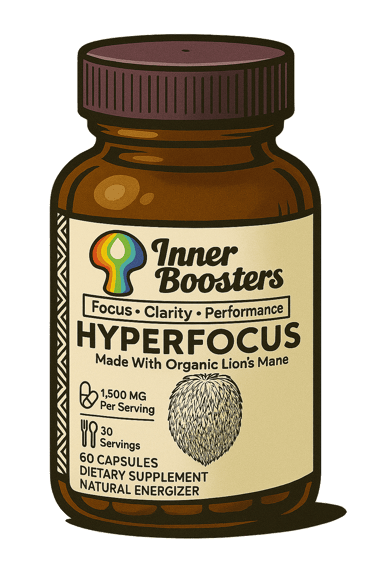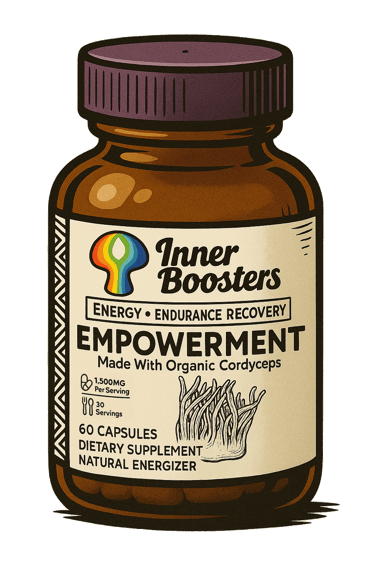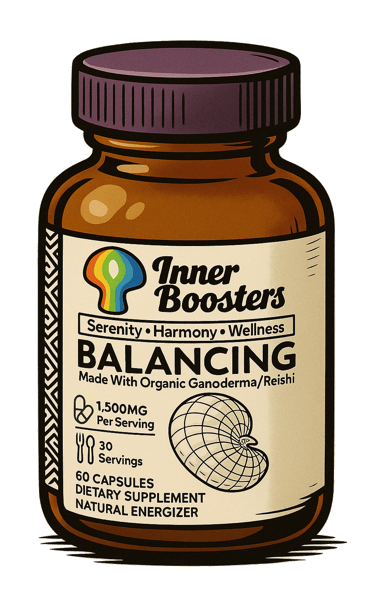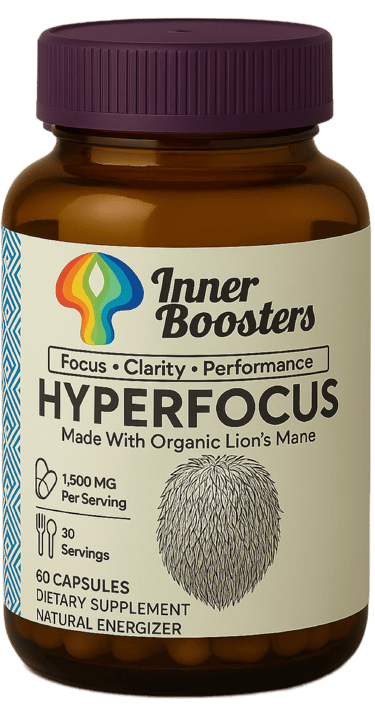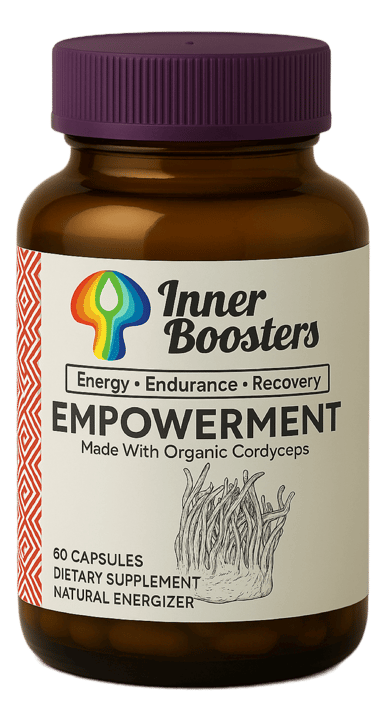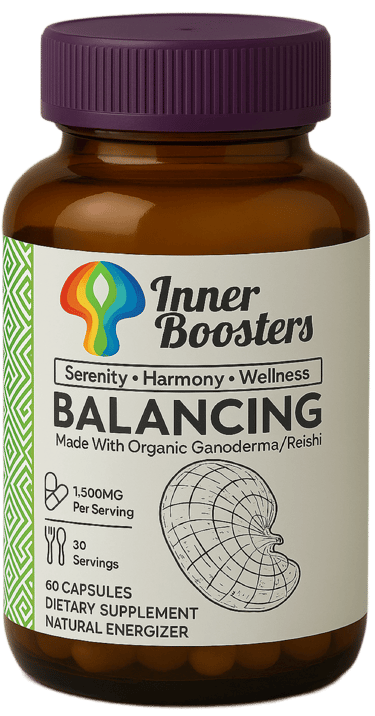Inner Boosters
About US
Where Wellness Begins From Within
At Inner Boosters, we believe that true performance and well-being start at the core — with balance, clarity, and resilience from within.
We are dedicated to developing advanced wellness formulas powered by medicinal mushrooms, adaptogens, and neuroscience-backed ingredients, designed to help you cultivate harmony between mind and body.
Our philosophy is simple yet profound: combine the wisdom of traditional medicine with the rigor of modern science. Every product we create is backed by empirical evidence, formulated to support not just how you perform, but how you feel.
Our Mission
To empower individuals to live, work, and thrive at their full potential by offering science-driven, nature-inspired supplements that enhance mental clarity, emotional regulation, and sustained energy, without overstimulation or dependency.
Our Approach
Traditional Wisdom Meets Modern Science
We respect centuries-old medicinal traditions and adaptogenic principles, while integrating them with contemporary neuroscience and clinical research.
Holistic Performance
We recognize that true performance isn’t just about physical output — it’s about mental stability, emotional resilience, and the ability to remain calm and focused under pressure.
Sustainable Wellness
Wellness shouldn’t be a luxury or a temporary boost; it should be a foundation for a lifestyle. Our products are designed to become part of your daily ritual, supporting you consistently over time.
Our Signature Formulas
HYPERFOCUS
A natural nootropic blend that sharpens cognitive performance, reduces stress, and supports brain health. Perfect for high-demand environments where sustained mental clarity is essential.
EMPOWERMENT
A vitality-enhancing formula that optimizes cellular energy, improves both physical and mental performance, and supports faster recovery — all without the highs and lows of synthetic stimulants.
BALANCING
A calming yet strengthening blend that supports the nervous and immune systems, reduces stress, and promotes restorative sleep, helping you maintain emotional stability and resilience.
Why Choose Inner Boosters?
Because wellness should be your starting point, not a luxury.
We go beyond creating supplements; we create daily rituals of reconnection. Our carefully crafted blends work in synergy to:
Sharpen your focus
Protect your energy
Cultivate calm, steady strength
Support resilience in both mind and body
We are here to help you stay grounded, energized, and present — even in life’s most demanding moments.
OUR PROMISE
At Inner Boosters, every product is formulated with the highest purity, safety, and effectiveness standards. We never compromise on quality, sourcing only premium-grade ingredients and ensuring every batch meets rigorous testing.
Your well-being is our mission. Your performance, our passion.


HYPERFOCUS
Natural Nootropic
↗ Promotes neurogenesis and brain health
↗ Mental clarity and high productivity
↗ Enhances memory and retention
↗ Sustained focus without fatigue


empoWERMENT
Natural Energizer
↗ Long-lasting physical and mental energy
↗ Improved performance and vitality
↗ Speeds up muscle recovery
↗ Boosts libido and hormonal balance


BALANCING
Natural Calming
↗ Relieves stress and regulates emotions
↗ Balances the nervous system
↗ Ensures deep and restorative sleep
↗ Strengthens the immune system
Our Products
“Rooted in Calm. Powered by Nature. Focused for Life.”
Frequently asked questions
1. What sets Inner Boosters apart from other formulas on the market?
Inner Boosters blends natural adaptogens, medicinal mushrooms, and neuroscience-based formulations to activate your energy, sharpen your focus, and enhance emotional balance, sustainably and without harsh stimulants.
2. Do Inner Boosters create dependency?
No. Inner Boosters are made with non-addictive, natural ingredients. Daily use supports core functions in the body without building physical or psychological dependence.
3. Are the Inner Boosters dosages safe and effective?
Yes. Each formula is carefully dosed at therapeutic levels to deliver real benefits without overstimulating the nervous system.
4. Do Inner Boosters have certifications or quality controls?
Yes. All Inner Boosters ingredients are selected under strict quality standards, including certificates of analysis, full traceability, and manufacturing in GMP-certified facilities.
5. Are there any side effects?
Inner Boosters blends natural adaptogens, medicinal mushrooms, and neuroscience-based formulations to activate your energy, sharpen your focus, and enhance emotional balance, sustainably and without harsh stimulants.
6. Can I combine different Inner Boosters formulas?
Absolutely. The formulas are designed to work synergistically. For example:
HYPERFOCUS in the morning for mental clarity
EMPOWERMENT before physical activity or a demanding work session
BALANCING in the evening or during times of emotional stress
7. What are the main benefits of HYPERFOCUS?
It enhances concentration, mental clarity, and sustained productivity without mental fatigue. Ideal for deep work, creative sessions, or long study hours.
8. What are the main benefits of EMPOWERMENT?
It boosts natural physical energy and motivation steadily and sustainably. Supports performance without overstimulation or energy crashes—perfect to start the day strong or combat fatigue.
9. What are the main benefits of BALANCING?
It supports emotional regulation, nervous system stability, and stress resilience. Promotes calm awareness and better sleep quality—ideal for unwinding after intense days.
10. Why choose Inner Boosters over other nootropics or energy supplements?
Because Inner Boosters doesn’t just stimulate your mind and body, it strengthens your system from within, supports emotional resilience, and respects your biology. No aggressive stimulation, just functional balance.
11. What results can I expect and how soon?
Many users report feeling increased focus, calmness, or energy within the first few days. Deeper, more lasting effects like emotional resilience and nervous system balance typically build up within 2 to 4 weeks of consistent use.
12. Who is Inner Boosters recommended for?
Inner Boosters is ideal for people looking to optimize daily performance, reduce mental fatigue, and live with more clarity, energy, and emotional balance—professionals, creatives, students, entrepreneurs, and athletes.
13. Can I take Inner Boosters if I follow a specific diet?
Yes. Inner Boosters formulas are high-quality, vegan, gluten-free, non-GMO, and free from added sugars, making them fully compatible with keto, paleo, plant-based, and functional nutrition. We also work with suppliers certified Halal and Kosher, ensuring ingredient purity, safety, and ethical sourcing.
14. Who should NOT take Inner Boosters?
Inner Boosters is not recommended for minors, pregnant or breastfeeding women, or individuals with serious medical conditions without first consulting their doctor.
15. How long does shipping take?
Orders typically arrive within 2 to 5 business days, depending on your location. Once your purchase is confirmed, you'll receive a tracking number and shipping notification via email.
“Daily Rituals for Inner Calm, Lasting Strength, and a Clearer Mind”
Product Details
is a natural formula carefully designed to restore internal balance, calm the mind, and strengthen the immune system. BALANCING acts as an emotional and neuroimmunological regulator, ideal for people facing high levels of stress, persistent anxiety, emotional fatigue, or sleep disorders. Its combination of adaptogens and highly bioavailable amino acids promotes sustained serenity, without causing dependency or drowsiness.


"Find Your Balance, Feel Your Strength."
BALANCING
benefits
• Promotes better sleep quality, promoting deep, restorative, and continuous sleep cycles.
• Balances emotional state, facilitating more adaptive responses to situations of pressure or prolonged tension.
• Promotes a sustained sense of calm without altering mental clarity or causing unwanted side effects.
• Strengthens natural defenses, optimizing immune performance, especially during periods of chronic fatigue, insomnia, or emotional overload.
How to take it?
Take two capsules every night with water, ideally 30 minutes before bed or at the end of your day. Regular use can easily be integrated into your nighttime self-care routine to promote deep relaxation and truly restorative sleep.
BALANCING
isn't just a supplement. It's a commitment to yourself to sustain your strength, ignite your motivation, and vibrate with greater vitality.
Suggested Use: Take 2 vegetable capsules daily or as directed by a healthcare professional.
Serving Size: 2 vegetable capsules (750 mg each).
Presentation: 60 vegetable capsules per bottle.
• Reduces stress and anxiety levels by modulating the nervous system's response to external stimuli.
Product Details
is a high-performance natural formula that sustainably elevates your physical and mental energy, boosts endurance, improves muscle recovery, and activates sexual vitality. Designed for active people with busy schedules or for moments when you need to reconnect with your inner power without resorting to harsh stimulants.


"Perform Stronger. Feel Deeper. Live Fuller."
EMPOWERMENT
benefits
• Improves muscle performance, cellular oxygenation, and post-exertion recovery, promoting optimal fitness for physical activity.
• Supports hormonal balance, especially during times of high emotional demand, prolonged stress, or energy imbalances.
• Stimulates physical and emotional resilience, facilitating a greater connection with motivation and inner strength.
• Contributes to improved sexual desire and overall vitality, from an integrative perspective of well-being.
How to take it?
Every morning, with water. You can easily integrate it into your daily routine before training, starting your workday, or simply activating your vital energy.
empowerment
isn't just a supplement. It's a commitment to yourself to sustain your strength, ignite your motivation, and vibrate with greater vitality.
Suggested Use: Take 2 vegetable capsules daily or as directed by a healthcare professional.
Serving Size: 2 vegetable capsules (750 mg each).
Presentation: 60 vegetable capsules per bottle.
• Sustainably increases physical and mental energy levels without causing sudden spikes or stimulant side effects.
Product Details
was developed for those who want to reach their full mental potential every day. Ideal for professionals, students, creatives, and mental athletes who need clarity, sustained focus, and emotional balance. It's not just a supplement; it's a conscious tool to strengthen your mind, improve your performance, and keep you in control of your daily decisions.


"Unlock Clarity. Sustain Performance."
hyperfocus
benefits
• Stimulates mental clarity and prolonged concentration, essential for tasks that require high cognitive performance.
• Promotes information retention and mental agility, supporting executive functions such as decision-making, learning, and planning.
• Reduces the effects of mental fatigue and emotional saturation, helping maintain balanced performance under pressure.
• Enhances the functioning of the dopaminergic system, promoting sustained internal motivation.
• Promotes the neurochemical balance necessary for a stable emotional response during demanding situations.
• Nerve growth factor (NGF), also known as NGF, is a protein that plays a crucial role in the development, maintenance, and function of the nervous system. It acts as a signaling molecule, promoting the growth, survival, and differentiation of certain nerve cells.
• In addition, it contributes to strengthening neuronal connections, key to long-lasting memory and an agile mind.
How to take it?
Every morning, with water. You can easily integrate it into your daily routine before work, studying, or training.
hyperfocus
isn't just a supplement. It's a conscious decision to take care of your mind, support your performance, and be in charge of your days.
Suggested Use: Take 2 vegetable capsules daily or as directed by a healthcare professional.
Serving Size: 2 vegetable capsules (750 mg each).
Presentation: 60 vegetable capsules per bottle.
Synergy Formula
HYPERFOCUS is designed to act on three complementary axes:
Stress regulation and emotional stability (Ashwagandha) to keep the nervous system functioning without interference.
This combination maximizes both immediate performance and long-term brain health and protection.
Combined clinical and preclinical evidence
Clinical studies with Lion's Mane and Ashwagandha have shown significant improvements in memory, attention, and processing speed, both in healthy adults and in people with mild cognitive impairment or chronic stress. In particular, Lion's Mane has demonstrated its ability to stimulate the production of nerve growth factor (NGF) and promote neuroplasticity, while Ashwagandha has markedly reduced cortisol levels and improved cognitive performance in high-demand environments.
Potential benefits of HYPERFOCUS
Preventive potential against cognitive decline and neurodegenerative diseases.
Significant increase in concentration and working memory.
Reduction in mental fatigue and the impact of stress.
A calm and alert state is ideal for critical tasks.
Support for attention disorders and cognitive performance under pressure.
Safety and recommended use
Safe and well-tolerated formula for adults. Two capsules are recommended daily, preferably in the morning or before intense cognitive activities. Not recommended for use during pregnancy, breastfeeding, or in people with active neurological conditions without medical supervision.
Optimal neurotransmitter levels (L-Tyrosine) to maintain mental energy and motivation.
Neurogenesis and neuronal plasticity (Lion's Mane) to build and maintain a more efficient brain.
At the preclinical level, Lion's Mane and Ashwagandha have demonstrated neuroprotective properties against oxidative damage and neuroinflammation, supporting their potential as preventative agents in neurodegenerative diseases such as Alzheimer's and Parkinson's. This research suggests that the combination of neurogenesis, stress regulation, and neurotransmitter support in HYPERFOCUS may not only optimize immediate cognitive performance but also contribute to long-term brain health.
In the management of stress and anxiety, Ashwagandha stands out for its consistent results in controlled clinical trials, showing reductions in generalized anxiety and increased emotional resilience. Meanwhile, L-Tyrosine has been shown in studies with military personnel, students, and workers under pressure to maintain accuracy and reaction time, even under conditions of sleep deprivation or intensive multitasking, making it a key resource for sustained mental performance.
hyperfocus
Lion's Mane
HYPERFOCUS is an advanced formula that combines Lion's Mane (Hericium erinaceus), Ashwagandha (Withania somnifera), and L-Tyrosine to optimize cognitive function, modulate stress, and protect brain health. This natural nootropic targets neurogenesis, neurotransmitter production, and stress axis regulation, providing sustained mental clarity and improved tolerance to highly demanding environments.
Scientific evidence supports its use as an adjuvant in the management of chronic stress, mental fatigue, attention disorders, anxiety, and as a preventative support against neurodegenerative diseases.
The human brain is capable of adapting, regenerating, and optimizing its functioning when it receives the appropriate stimulation and support. However, today's pace of life exposes the nervous system to information overload, constant stress, and mental fatigue.
HYPERFOCUS was developed for people who need deep focus, calm under pressure, and optimal cognitive performance, combining three ingredients with proven efficacy in the scientific literature and a tradition of therapeutic use.
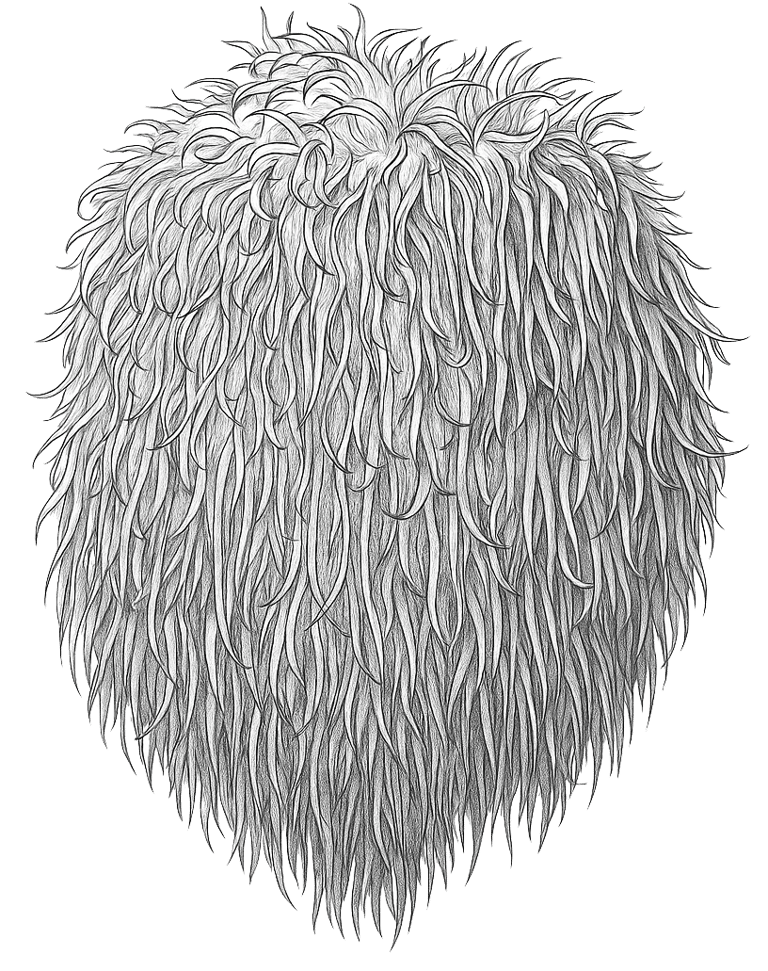

Key ingredients and mechanisms of action
Mechanism of action: Stimulates the synthesis of nerve growth factor (NGF), promoting neuron formation and repair and improving synaptic plasticity. It contains hericenones and erinacines with neuroprotective activity.
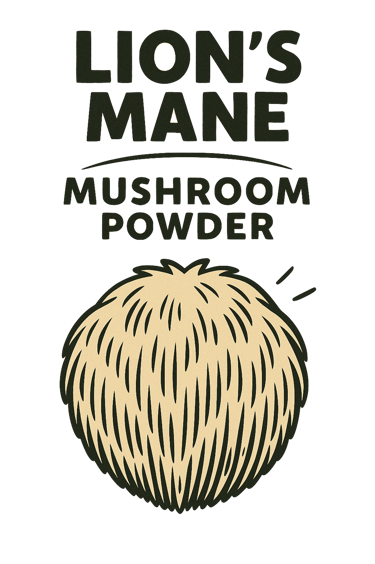

Lion's Mane (Hericium erinaceus)
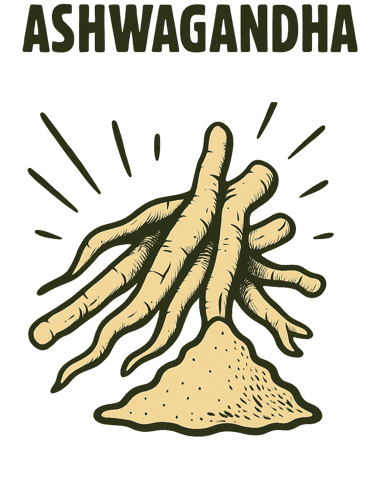

Ashwagandha (Withania somnifera)
Mechanism of action: It acts as an adaptogen, regulating the hypothalamic-pituitary-adrenal axis, reducing cortisol and the inflammatory response. It contains withanolides with anxiolytic, anti-inflammatory, and neuroprotective properties.
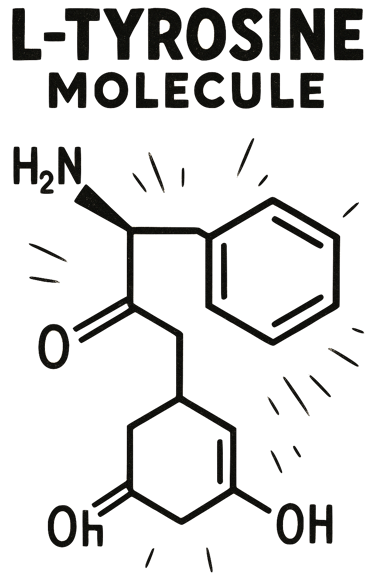

Mechanism of action: Direct precursor of catecholamines (dopamine, norepinephrine, adrenaline), essential for attention, working memory, and motivation. It improves the synthesis of these neurotransmitters under conditions of high mental demand.
L-Tyrosine
Clinical evidence: Studies have shown improvements in memory and cognitive function in older adults with mild cognitive impairment and people under mental stress.
Conditions it may help with: Mild cognitive impairment, prevention of Alzheimer's and Parkinson's disease (preclinical potential), recovery from nerve injuries, and support for depression and anxiety.
Clinical evidence: Controlled trials have shown significant stress reduction and improved attention, memory, and processing speed.
Conditions it may help with: generalized anxiety, chronic stress, stress-associated insomnia, mental fatigue, and stress-induced cognitive impairment.
Mechanism of action: Direct precursor of catecholamines (dopamine, norepinephrine, adrenaline), essential for attention, working memory, and motivation. It improves the synthesis of these neurotransmitters under conditions of high mental demand.
Conditions it can help with: attention deficit, mental fatigue, occupational stress, and poor cognitive performance under adverse conditions.
The main active compounds of H. erinaceus are hericenones (extracted from the fruiting body) and erinacines (isolated from the mycelium). Both groups stimulate the production of NGF (Nerve Growth Factor), a protein essential for the growth, repair, and survival of neurons (Spangenberg et al., 2025).
Lion's Mane
Hericium erinaceus, known as Lion's Mane, is a medicinal mushroom traditionally used in Asia that has gained scientific interest for its ability to stimulate Nerve Growth Factor (NGF), promote neuroregeneration, and exert neuroprotective effects. Initial preclinical and clinical literature suggests benefits in mild cognitive impairment and potential applications in neurodegenerative diseases and neurodevelopmental disorders, as well as possible protective vascular effects.
The Neural Architect
Introduction
The mushroom Hericium erinaceus grows on tree trunks in temperate forests and has been used for centuries in traditional Chinese and Japanese medicine to improve memory, digestion, and vitality (Brandalise et al., 2023). Currently, its research focuses on its neurotrophic properties, particularly its ability to stimulate NGF, a key protein in maintaining neuronal health.
Bioactive Compounds and NGF
NGF acts as a "brain fertilizer," promoting synaptic plasticity and the functional maintenance of neuronal networks. Reduced levels of NGF are associated with cognitive decline and neurodegenerative diseases (Contato et al., 2025).
Mechanisms of Action
Effects on the Central Nervous System
NGF stimulation → increased neuronal regeneration and synaptogenesis.
Improvement of brain plasticity and myelination.
Reduction of neurogenic inflammation and oxidative stress by modulating pathways such as NF-κB and Nrf2 (Brandalise et al., 2023).
Vascular Effects
Reduction of low-density lipoprotein (LDL) oxidation and endothelial inflammation in in vitro studies, suggesting possible support for cardiovascular health (Docherty et al., 2023).
Effects on Mood
Modulation of neurotransmitters such as serotonin and dopamine, with potential benefits in managing stress and anxiety (Docherty et al., 2023).
Clinical and Preclinical Evidence
Mild Cognitive Impairment
In a double-blind, controlled trial, older adults with mild cognitive impairment received 3 g/day of H. erinaceus powder for 16 weeks, showing significant improvements in memory and attention compared to placebo (Mori et al., 2009). The benefits diminished after discontinuing the supplement.
Alzheimer's Disease
Preclinical studies indicate that erinacines reduce beta-amyloid plaques, increase degrading enzymes, and promote synaptic function (Trovato et al., 2018). Although large clinical trials in patients with advanced Alzheimer's disease are lacking, the biological basis is solid and consistent.
Parkinson's Disease
Animal models have shown protection of dopaminergic neurons and reduction of neuroinflammation in key motor areas, supporting its potential as an adjuvant (Spangenberg et al., 2025).
Multiple sclerosis (MS)
Research shows that it promotes oligodendrocyte maturation and myelin formation, which is relevant given that MS is characterized by progressive demyelination (Huang et al., 2021).
Amyotrophic lateral sclerosis (ALS)
In animal models, its compounds have been shown to reduce inflammation and oxidative stress, processes involved in motor neuron degeneration (Brandalise et al., 2023).
Autism spectrum disorder (ASD)
Preclinical studies show that H. erinaceus promotes myelination and reduces brain inflammation, two alterations present in ASD. Although robust clinical trials do not yet exist, the biological potential for modulating neurodevelopmental processes is considerable (Modafferi et al., 2024).
Potential Benefits
Improved memory, attention, and mental clarity.
Possible support for neurodegenerative diseases (Alzheimer's, Parkinson's, MS, ALS) and neurodevelopmental disorders (ASD).
Neuroprotection against aging processes and oxidative damage.
Vascular protection and improved cerebral circulation.
Contribution to emotional well-being.
Safety and Dosage
In human studies, doses of 1–3 g/day have been well tolerated, with mild side effects such as digestive discomfort reported. It is contraindicated in people with fungal allergies, and caution is recommended in patients undergoing neurological or cardiovascular treatment (ONS, 2024).
Conclusion
Hericium erinaceus is one of the few natural compounds with a demonstrated ability to stimulate NGF, promoting neuronal regeneration and protection. It has initial clinical evidence in mild cognitive impairment and robust preclinical support that supports its exploration in neurodegenerative and neurodevelopmental diseases. Although it does not replace conventional medical treatments, its integration as a nutritional supplement shows great potential for long-term brain and vascular health.
References
Brandalise, F., et al. (2023). Hericium erinaceus in neurodegenerative diseases. International Journal of Molecular Sciences, 24(10), 8780. https://doi.org/10.3390/ijms24108780
Contato, A. G., et al. (2025). Lion's mane mushroom (Hericium erinaceus): A review of clinical evidence and mechanisms. Nutrients, 17(8), 1307. https://doi.org/10.3390/nu17081307
Docherty, S., et al. (2023). The acute and chronic effects of lion's mane mushroom on cognition and mood in healthy young adults. Nutrients, 15(21), 4698. https://doi.org/10.3390/nu15214698
Huang, H.-T., et al. (2021). Hericium erinaceus mycelium and its small bioactive compounds promote oligodendrocyte maturation and myelination. Scientific Reports, 11, 11396. https://doi.org/10.1038/s41598-021-85972-2
Modafferi, S., et al. (2024). Antioxidants, hormetic nutrition, and autism. Nutrients, 16(2), 322. https://doi.org/10.3390/nu16020322
Mori, K., Inatomi, S., Ouchi, K., Azumi, Y., & Tuchida, T. (2009). Improving cognitive impairment of the elderly by ingestion of Hericium erinaceus. Phytotherapy Research, 23(3), 367–372. https://doi.org/10.1002/ptr.2634
Oncology Nursing Society. (2024). What the evidence says about lion's mane mushroom for patients with cancer. ONS News & Views. https://www.ons.org/
Spangenberg, E. T., et al. (2025). Unveiling the role of erinacines in the neuroprotective potential of Hericium erinaceus. International Journal of Molecular Sciences, 26(3), 1234. https://doi.org/10.3390/ijms26031234
Trovato, A., et al. (2018). Hericium erinaceus and nerve growth factor: A neuropharmacological review. Journal of Medicinal Food, 21(7), 645–652. https://doi.org/10.1089/jmf.2017.0069
Hericium erinaceus
Ashwagandha
Withania somnifera
The stress stabilizer
Withania somnifera, known as Ashwagandha or "Indian ginseng," is an adaptogenic herb used for over 3,000 years in Ayurvedic medicine. Its phytochemical profile, rich in withanolides, alkaloids, and saponins, gives it properties that reduce stress, modulate the hypothalamic-pituitary-adrenal (HPA) axis, improve cognitive performance, and promote hormonal and immune balance. Clinical evidence supports its efficacy in managing stress, anxiety, and improving sleep quality, while preclinical research suggests therapeutic potential for neurodegenerative, endocrine, and metabolic diseases.
Introduction
Ashwagandha is native to dry regions of India, the Middle East, and Africa. In the Ayurvedic system, it is considered a rasayana, a rejuvenating agent that prolongs life and restores vitality (Singh et al., 2011). Modern science has validated several of its traditional uses, particularly as an adaptogen, stress modulator, and promoter of physical and mental resilience (Lopresti et al., 2019).
The hypothalamic-pituitary-adrenal axis regulates the stress response through hormones such as cortisol. Chronic activation of the HPA axis is associated with anxiety, depression, insomnia, chronic fatigue, and immune impairment.
Bioactive compounds and key mechanisms
The effects of Ashwagandha come mainly from:
Withanolides:
modulators of neurotransmitters and the immune system.
Alkaloids and saponins:
steroid lactones with anti-inflammatory, antioxidant, and anxiolytic properties.
What is the HPA axis?
Ashwagandha modulates this axis by reducing cortisol levels and normalizing the activity of the sympathetic nervous system (Salve et al., 2019).
Mechanisms of action
Modulation of stress and anxiety
Reduction of serum cortisol and inflammatory markers (IL-6, C-reactive protein).
Increased levels of neurotransmitters such as GABA and serotonin, generating a state of calm without sedation (Choudhary et al., 2015).
Neuroprotection
Antioxidant activity in the brain, protects against oxidative stress and mitochondrial damage.
Stimulation of neurogenesis in the hippocampus and prefrontal cortex (Kumar et al., 2020).
Endocrine and metabolic effects
Improved insulin sensitivity and reduced blood glucose in preliminary studies.
Thyroid hormone balance in subclinical hypothyroidism.
Immunomodulation
Stimulates lymphocyte proliferation and NK (Natural Killer) cell activity.
Clinical and preclinical evidence
Stress and anxiety
Clinical trials have shown 27–44% reductions in anxiety scores (HAM-A scale) and significant decreases in cortisol after 60 days of supplementation with standardized extracts (300–600 mg/day) (Chandrasekhar et al., 2012; Lopresti et al., 2019).
Cognitive performance and memory
In adults with mild cognitive impairment, Ashwagandha supplementation for 8 weeks improved immediate and general memory, as well as processing speed (Choudhary et al., 2015).
Dream
Recent studies show that 300 mg/day for 8 weeks improves sleep quality and latency, as measured by the PSQI index (Langade et al., 2019).
Neurodegenerative diseases
Alzheimer's:
Studies in animal models show a reduction of beta-amyloid plaques and improvement of synaptic function, associated with a reduction of oxidative stress and neuroinflammation (Kuboyama et al., 2006).
Parkinson:
protects dopaminergic neurons and improves motor coordination in experimental models (Kumar et al., 2020).
Multiple sclerosis:
Its anti-inflammatory and antioxidant properties may promote myelin integrity, although the evidence is preclinical.
ela:
Cellular studies suggest reduced neuronal death due to oxidative stress.
Autism spectrum disorder (ASD)
In ASD, its use has been proposed for its antioxidant, anti-inflammatory, and anxiolytic properties. Animal studies show improvements in social interactions and a reduction in repetitive behaviors, possibly due to neurotransmitter modulation and a reduction in brain inflammation (Bhat et al., 2017). Evidence in humans is still limited, but its biological potential is significant.
Potential benefits
Reduction of stress and anxiety.
Improves memory and cognitive function.
Supports hormonal and glycemic regulation.
Potential neuroprotection against neurodegenerative diseases.
Improves sleep quality.
Immune support.
Safety and dosage
In clinical studies, doses of 300–600 mg/day of standardized extract (≥5% withanolides) have shown a favorable safety profile. Possible adverse effects include mild gastrointestinal discomfort. Caution is advised during pregnancy, lactation, uncontrolled hypertension, or hyperthyroidism (Lopresti et al., 2019).
Conclusion
Withania somnifera is an adaptogen with extensive clinical evidence for managing stress, anxiety, and sleep quality, in addition to benefits for cognitive function. Its antioxidant and anti-inflammatory profile supports its potential as a supplement for the prevention and support of neurodegenerative diseases, as well as ASD. Although it does not replace medical treatments, its inclusion in holistic health programs is highly promising.
References
Bhat, A., Sharma, A., & Sharma, S. (2017). Neuroprotective role of Withania somnifera root extract in a mouse model of autism. Journal of Ethnopharmacology, 207, 302–313. https://doi.org/10.1016/j.jep.2017.06.006
Chandrasekhar, K., Kapoor, J., & Anishetty, S. (2012). A prospective, randomized double-blind, placebo-controlled study of safety and efficacy of a high-concentration full-spectrum extract of Ashwagandha root in reducing stress and anxiety in adults. Indian Journal of Psychological Medicine, 34(3), 255–262. https://doi.org/10.4103/0253-7176.106022
Choudhary, D., Bhattacharyya, S., & Bose, S. (2015). Efficacy and safety of Ashwagandha (Withania somnifera (L.) Dunal) root extract in improving memory and cognitive functions. Journal of Dietary Supplements, 12(1), 1–12. https://doi.org/10.3109/19390211.2014.1001893
Kuboyama, T., Tohda, C., & Komatsu, K. (2006). Withanoside IV and its active metabolite, sominone, attenuate Aβ (25–35)-induced neurodegeneration. British Journal of Pharmacology, 149(8), 960–969. https://doi.org/10.1038/sj.bjp.0706923
Kumar, S., et al. (2020). Neuroprotective effects of Withania somnifera in Parkinson’s disease models. Phytotherapy Research, 34(6), 1246–1260. https://doi.org/10.1002/ptr.6614
Langade, D., et al. (2019). Efficacy and Safety of Ashwagandha (Withania somnifera (L.) Dunal) Root Extract in Insomnia and Anxiety: A Double-blind, Randomized, Placebo-controlled Study. Cureus, 11(9), e5797. https://doi.org/10.7759/cureus.5797
Lopresti, A. L., Smith, S. J., Malvi, H., & Kodgule, R. (2019). An investigation into the stress-relieving and pharmacological actions of an ashwagandha (Withania somnifera) extract: A randomized, double-blind, placebo-controlled study. Medicine (Baltimore), 98(37), e17186. https://doi.org/10.1097/MD.0000000000017186
Salve, J., et al. (2019). Adaptogenic and anxiolytic effects of Ashwagandha root extract in healthy adults: A double-blind, randomized, placebo-controlled study. Cureus, 11(12), e6466. https://doi.org/10.7759/cureus.6466
Singh, N., Bhalla, M., de Jager, P., & Gilca, M. (2011). An overview on Ashwagandha: A Rasayana (rejuvenator) of Ayurveda. African Journal of Traditional, Complementary, and Alternative Medicines, 8(5S), 208–213. https://doi.org/10.4314/ajtcam.v8i5S.9
L-Tyrosine
fuel for motivation
L-Tyrosine is a non-essential amino acid that acts as a direct precursor to key catecholamines such as dopamine, norepinephrine, and adrenaline. Its availability in the body influences the production of neurotransmitters related to mood, motivation, concentration, and stress response. Clinical evidence shows that L-Tyrosine supplementation can improve cognitive performance and responsiveness in situations of high mental or physical demand, while preclinical studies suggest a protective role against neurodegenerative and mood disorders.
Introduction
L-Tyrosine is obtained both from the diet (primarily from animal and plant proteins) and by endogenous synthesis from phenylalanine. It is considered "non-essential" because the body can produce it, but its availability can become limited under conditions of prolonged stress, extreme fatigue, or high cognitive demand (Fernstrom & Fernstrom, 2007).
Bioactive compounds and key mechanisms
The main function of L-Tyrosine is to serve as a substrate for the synthesis of:
Dopamine
motivation, reward, and motor control.
Norepinephrine and adrenaline
Neuroprotective
Thyroid hormones (T3 and T4)
stress response, focus, and attention.
metabolism and energy regulation.
What are catecholamines?
They are neurotransmitters and hormones that allow the brain and body to respond quickly and effectively to physically or mentally challenging situations. L-Tyrosine increases its availability in situations where they are depleted due to intense stress.
Mechanisms of action
Support under stress
During acute stress, increased neuronal activity depletes catecholamine stores. L-tyrosine supplementation provides the necessary substrate to maintain their synthesis (Banderet & Lieberman, 1989).
Cognitive optimization
Improves working memory and attention in high mental pressure environments (Thomas et al., 1999).
Neuroendocrine support
It participates in the production of thyroid hormones, modulating metabolic rate and energy regulation.
effects
Preclinical studies show that adequate levels of L-Tyrosine can reduce neuronal vulnerability in Parkinson's and Alzheimer's models, possibly by supporting dopaminergic synthesis (Haavik & Toska, 1998).
Clinical and preclinical evidence
Stress and cognitive performance
Condiciones extremas
In military personnel exposed to intense cold, fatigue, and sleep deprivation, 2g of L-Tyrosine significantly improved cognitive performance versus placebo (Banderet & Lieberman, 1989).
Demanding cognitive tasks
Supplementation prior to working memory tests improved accuracy and response speed under multitasking (Thomas et al., 1999).
Thyroid function
It is a precursor to the hormones T3 and T4. In individuals with low protein intake or iodine intake, supplementation can optimize hormone production (Pfeuffer et al., 1999).
Neurodegenerative
Parkinson
diseases
L-Tyrosine, as a precursor of dopamine, could contribute to maintaining levels of this neurotransmitter in the initial stages, although it does not replace L-Dopa (Haavik & Toska, 1998).
Alzheimer
Studies in animal models suggest that maintaining catecholamine synthesis improves neuronal communication and memory, reducing experimentally induced cognitive deficits (Berggren et al., 2010).
Autism spectrum disorder (ASD)
In ASD, alterations in the synthesis and metabolism of dopamine and norepinephrine have been observed. L-Tyrosine, as a precursor, has been proposed as a nutritional support to modulate neurotransmission, although clinical evidence is still limited and mostly preliminary (Adams et al., 2011).
Potential benefits
Maintaining focus and mental performance under stress.
Support the production of key neurotransmitters for mood.
Complement nutritional support in chronic fatigue and high mental demands.
Potential neuroprotection in diseases such as Parkinson's and Alzheimer's.
Adjuvant support in alterations of dopaminergic regulation (e.g. ASD, ADHD).
Safety and dosage
Complement nutritional support in chronic fatigue and high mental demands. Clinical studies have used doses of 100–150 mg/kg/day in situations of acute stress, and doses of 500 mg to 2 g/day in healthy adults to optimize mental performance. It is generally well tolerated, although it may cause insomnia or nervousness if consumed in excess or close to bedtime. Contraindicated in hyperthyroidism and when used uncontrolled with MAO inhibitors.
Conclusion
L-Tyrosine is a key amino acid for the synthesis of neurotransmitters and thyroid hormones. Supplementation may improve attention, working memory, and stress response, with potential relevance in the complementary management of neurodegenerative diseases and neurodevelopmental disorders. Although clinical evidence is strong for stress and cognitive performance, the benefits in chronic neurological conditions require further investigation.
References
Adams, J. B., et al. (2011). Nutritional and metabolic status of children with autism vs. neurotypical children, and the association with autism severity. Nutrition & Metabolism, 8, 34. https://doi.org/10.1186/1743-7075-8-34
Banderet, L. E., & Lieberman, H. R. (1989). Tyrosine supplementation effects on cognitive performance and blood pressure under stress. Aviation, Space, and Environmental Medicine, 60(6), 533–538.
Berggren, U., et al. (2010). Tyrosine and cognitive function in aging. Neurobiology of Aging, 31(2), 213–222. https://doi.org/10.1016/j.neurobiolaging.2008.03.002
Fernstrom, J. D., & Fernstrom, M. H. (2007). Tyrosine, phenylalanine, and catecholamine synthesis and function in the brain. Journal of Nutrition, 137(6 Suppl 1), 1539S–1547S. https://doi.org/10.1093/jn/137.6.1539S
Haavik, J., & Toska, K. (1998). Tyrosine hydroxylase and Parkinson’s disease. Molecular Neurobiology, 16(3), 285–309. https://doi.org/10.1007/BF02741387
Pfeuffer, M., et al. (1999). Tyrosine supplementation and thyroid function. Hormone and Metabolic Research, 31(5), 327–331. https://doi.org/10.1055/s-2007-978730
Thomas, J. R., et al. (1999). Tyrosine improves working memory in a multitasking environment. Psychopharmacology, 145(3), 393–399. https://doi.org/10.1007/s002130051070
Synergy Formula
The combination of Cordyceps, Black Maca, and L-Carnitine boosts energy on three fronts
Black Maca regulates hormonal balance and provides physical and mental vitality.
This comprehensive approach ensures that energy is not only felt immediately but also remains stable throughout the day.
Combined clinical and preclinical evidence
Clinical studies with Cordyceps sinensis have demonstrated significant increases in aerobic capacity, oxygenation, and endurance, especially in athletes and older adults. Its action on ATP production and improved mitochondrial function support its use as a safe and effective energizer.
Potential benefits of empowerment
Faster and more efficient muscle recovery.
Sustained physical and mental energy throughout the day.
Greater resistance and athletic performance.
Hormonal balance and improved libido.
Support against chronic fatigue and oxidative stress.
Safety and recommended use
Natural formula, free of synthetic stimulants, gluten, and genetically modified organisms. The suggested dosage is 2 capsules daily, preferably before physical activity or in the morning. Not recommended during pregnancy, breastfeeding, or for people with serious metabolic diseases without medical supervision.
L-Carnitine optimizes the use of fats as fuel and accelerates recovery.
Cordyceps boosts cellular energy production and endurance.
In preclinical studies, Cordyceps and Black Maca have demonstrated antioxidant, anti-inflammatory, and adaptogenic effects, while L-Carnitine has shown neuroprotection and improved brain energy metabolism. Together, these properties explain EMPOWERMENT's potential as a tool for increasing physical and mental energy, improving performance, and promoting overall recovery.
Black Maca has been shown in human research to improve energy, libido, and memory, as well as upregulate sex hormones and reduce symptoms associated with chronic stress.
L-Carnitine has been shown in trials to play a role in muscle recovery and reducing post-exercise oxidative damage, as well as its effectiveness in treating fatigue in people with chronic illnesses.
empowerment
Is the answer for those seeking real energy, without the highs and lows or unwanted side effects? Its unique formulation targets the body's energy systems, offering long-lasting vitality, improved performance, and faster recovery. Ideal for athletes, active individuals, or anyone looking for a natural boost to reach their full potential.
References
Cheng, N., et al. (2016). Effect of Cordyceps sinensis on exercise performance in healthy older subjects. Journal of Alternative and Complementary Medicine, 22(7), 545–552. https://doi.org/10.1089/acm.2015.0372
Gonzales, G. F., et al. (2014). Beneficial effects of Lepidium meyenii (Maca) on psychological symptoms and measures of sexual dysfunction in postmenopausal women: A randomized clinical trial. Menopause, 21(9), 977–985. https://doi.org/10.1097/GME.0000000000000193
Malaguarnera, M. (2012). Carnitine supplementation in patients with cancer-related fatigue. Nutrition, 28(10), 1035–1039. https://doi.org/10.1016/j.nut.2012.01.016
Zhang, D. W., et al. (2014). Cordyceps militaris improves exercise performance and fatigue resistance. Journal of Evidence-Based Complementary & Alternative Medicine, 19(4), 308–313. https://doi.org/10.1177/2156587214534761
Cordycepin (3'-deoxyadenosine): A nucleoside that activates AMP-activated protein kinase (AMPK), an enzyme that acts as a cellular energy sensor. When activated, AMPK increases metabolic efficiency, promotes mitochondrial biogenesis, and reduces inflammation associated with metabolic dysfunction.
Cordyceps
Cordyceps is an adaptogenic mushroom historically used in traditional Chinese medicine to promote vitality and longevity. Its active compounds, including cordycepin and specific polysaccharides, have demonstrated the ability to optimize cellular energy (ATP) production, improve oxygenation, and exert anti-inflammatory and immunomodulatory effects. Clinical evidence indicates improvements in exercise tolerance and aerobic performance, while preclinical studies show significant potential for cardiovascular health, metabolism, and neuroprotection.
The cellular energy generator
Introduction
In traditional Chinese medicine, Cordyceps sinensis was reserved for people recovering and to support physical endurance. Today, it is primarily researched for its ability to improve physical performance, recovery, and cardiometabolic health. Most modern supplements use Cordyceps militaris, which is more readily available and rich in cordycepin and has a standardized phytochemical profile.
Bioactive compounds and key mechanisms
It acts on the endothelial enzyme nitric oxide synthase (eNOS), promoting nitric oxide production, which improves vasodilation and blood circulation. It also modulates inflammatory pathways such as NF-κB, reducing vascular damage.
Mechanisms of Action
Neurological protection
Energy production and oxygenation
Cardiovascular health
The polysaccharides present regulate the immune response, balancing inflammation and strengthening defenses.
Physical performance and recovery
Cordyceps promotes ATP synthesis and improves mitochondrial function, which increases physical endurance and reduces fatigue.
Immune system and respiratory health
Modulation of the immune system
Clinical and Preclinical Evidence
Cardiovascular and
In animal models, cordycepin has been shown to reduce oxidative stress, inflammation, and mitochondrial dysfunction —factors implicated in neurodegenerative diseases such as Parkinson's and Alzheimer's.
Clinical trials have shown that Cordyceps supplementation for 1 to 3 weeks can improve maximal oxygen consumption (VO₂ max) by 4–11%, increase the ventilatory threshold, and prolong the time to fatigue. In older adults, extracts such as Cs-4 (C. sinensis) have shown benefits for exercise tolerance and perception of well-being.
Increased endurance and sustained energy.
Cordyceps polysaccharides have demonstrated the ability to modulate immune responses, with preliminary studies suggesting benefits to the quality of life of people with chronic respiratory conditions.
Support for cardiovascular and metabolic health.
In Parkinson's models, cordycepin protects dopaminergic neurons, improves mitochondrial function, and reduces brain inflammation. In Alzheimer's and other neurodegenerative diseases, its antioxidant and anti-inflammatory action, along with optimization of energy metabolism, supports its potential as an adjuvant, although human clinical trials are still limited.
Faster physical recovery and less fatigue.
Strengthening the immune system.
Neuroprotection and neurodegenerative diseases
Laboratory and animal studies indicate that Cordyceps improves endothelial function, promotes nitric oxide production, and reduces arterial inflammation. Its activation of AMPK contributes to improved fat and sugar management, with significant potential for cardiovascular prevention and metabolic control.
Potential Benefits
Potential neuroprotection in degenerative diseases.
Safety and Dosage
Cordyceps extracts are well tolerated in humans. Doses used in studies range from 1 to 4.5 g/day of extract or 1 to 2 g/day of standardized mixtures for 3 to 12 weeks. Unsupervised use is not recommended for people taking anticoagulants or cardiovascular medications, or during pregnancy or breastfeeding due to a lack of conclusive studies.
Conclusion
Cordyceps combines ancient tradition with modern scientific evidence supporting its role in increasing physical performance, improving cardiovascular health, and immune modulation. Its biological potential for neuroprotection and metabolic optimization is solid, although further clinical research is needed. As a supplement, it offers comprehensive benefits for energy, recovery, and overall well-being.
References
Chen, S., Li, Z., Krochmal, R., Abrazado, M., Kim, W., & Cooper, C. (2010). Effect of Cs-4 (Cordyceps sinensis) on exercise performance in healthy older subjects. Journal of Alternative and Complementary Medicine, 16(5), 585–590. https://doi.org/10.1089/acm.2009.0251
Chen, L., et al. (2024). Cordyceps polysaccharides: A review of their structures, biological activities and application. Carbohydrate Polymers, 320, 121305. https://doi.org/10.1016/j.carbpol.2023.121305
Chiou, W.-F., et al. (2000). Protein constituent contributes to the hypotensive and vasorelaxant activity of Cordyceps sinensis. Journal of Ethnopharmacology, 72(1–2), 213–220. https://doi.org/10.1016/S0378-8741(00)00240-7
Hirsch, K. R., et al. (2017). Cordyceps militaris improves tolerance to high-intensity exercise after acute and chronic supplementation. Journal of Dietary Supplements, 14(1), 1–13. https://doi.org/10.1080/19390211.2016.1185918
Jiang, X., et al. (2019). Cordycepin exerts neuroprotective effects via an anti-apoptotic mechanism in a rotenone-induced Parkinsonism rat model. CNS & Neurological Disorders—Drug Targets, 18(8), 676–688. https://doi.org/10.2174/1871527318666190529111026
Smiles, W. J., & Hawley, J. A. (2024). The metabolic sensor AMPK: Twelve enzymes in one. Trends in Endocrinology & Metabolism, 35(10), 803–818. https://doi.org/10.1016/j.tem.2024.07.001
Sun, Y., et al. (2020). Neuroprotective effects of natural cordycepin on LPS-induced Parkinson’s disease via suppressing TLR4/NF-κB/NLRP3-mediated pyroptosis. Biomedicine & Pharmacotherapy, 129, 110365. https://doi.org/10.1016/j.biopha.2020.110365
Wang, N., et al. (2016). Herbal medicine Cordyceps sinensis improves health-related quality of life in moderate-to-severe asthma. Evidence-Based Complementary and Alternative Medicine, 2016, 6134593. https://doi.org/10.1155/2016/6134593
Zhou, M., et al. (2023). Cordycepin suppresses vascular inflammation and apoptosis in endothelial dysfunction via AMPK-eNOS activation. Vascular Pharmacology, 150, 107170. https://doi.org/10.1016/j.vph.2022.107170
militaryis
Cordyceps polysaccharides: compounds with immunomodulatory action, capable of stimulating and regulating the activity of macrophages and lymphocytes, in addition to acting as potent antioxidants.
metabolic health
Black Maca
The root of total vitality
Black Maca (Lepidium meyenii) is an Andean root grown at over 4,000 meters above sea level, traditionally recognized for its ability to increase energy, improve fertility, and strengthen physical and mental endurance. Among its varieties (yellow, red, and black), Black Maca stands out for its higher concentration of bioactive compounds related to memory, hormonal balance, and libido. Clinical evidence supports its effectiveness in improving vitality, sexual desire, and certain cognitive functions, while preclinical studies suggest benefits for neuroprotection and endocrine balance.
Introduction
Native to the central Andes region of Peru and Bolivia, Black Maca has been used by Andean communities for centuries as a food and natural medicine. Its reputation stems from its adaptogenic properties, understood as the ability to help the body adapt to stress and maintain homeostasis. Modern scientific interest has confirmed some of these benefits, especially in the areas of reproductive health, physical performance, and cognitive function.
These compounds appear to influence the hypothalamus-pituitary-gonadal axis, regulating the production of sex hormones and modulating the response to stress.
Bioactive compounds and key mechanisms
responsible for effects on the nervous system and hormonal balance.
Macamides and macaenes
With antioxidant and cell protection action.
Essential amino acids, vitamins and minerals
Black Maca contains a unique profile of phytonutrients, including:
Polyphenols and glucosinolates
It regulates the secretion of sex hormones without containing phytoestrogens or direct androgens, which promotes a safe modulating effect in both men and women.
Mechanisms of action
that contribute to energy and metabolic support.
It increases libido and improves fertility parameters, possibly due to the combined action of macamides, macaenes and their effect on the central nervous system.
Hormonal balance
Preclinical studies have shown improvements in memory and learning, associated with a reduction in oxidative stress in the brain.
Neuroprotection
performance
Improved sexual function and fertility
It can increase exercise capacity and reduce fatigue, promoting recovery.
Clinical and preclinical evidence
Cognitive function
In healthy men, consuming 1.5 to 3 g/day for 12 weeks increased sexual desire compared to placebo, without altering serum hormone levels. In postmenopausal women, Black Maca improved sexual function and reduced menopause-related symptoms.
Bone and muscle health
In experimental models, an increase in bone mineral density and improvement in muscle strength have been observed, especially in conditions of hormonal deficiency.
Sexual and reproductive health
Black Maca has demonstrated an antioxidant and neuroprotective profile in the laboratory that could be useful as a supplement for diseases such as Alzheimer's and Parkinson's, although this use is still in the preclinical research stage.
Improves libido and sexual function.
Potential benefits
Black maca is considered safe at doses up to 3 g/day in 12-week clinical studies. It is well tolerated, and adverse effects are rare. Caution is recommended in people with uncontrolled thyroid disorders due to its glucosinolate content.
Safety and dosage
Conclusion
Black Maca is an Andean root with historical support and growing scientific evidence indicating its potential to enhance sexual function, vitality, and cognitive performance. Its adaptogenic, antioxidant, and hormonal balance modulating properties make it a versatile supplement for holistic health, with promising potential for neuroprotection and healthy aging.
References
Brooks, N. A., Wilcox, G., Walker, K. Z., Ashton, J. F., Cox, M. B., & Stojanovska, L. (2008). The beneficial effects of Lepidium meyenii (Maca) on psychological symptoms and measures of sexual dysfunction in postmenopausal women are not related to estrogen or androgen content. Menopause, 15(6), 1157–1162. https://doi.org/10.1097/gme.0b013e3181732953
Gonzales, G. F., Gasco, M., Malheiros-Pereira, A., & Gonzales-Castañeda, C. (2007). Antioxidant activity of Lepidium meyenii (Maca) on male and female rats. Food Chemistry, 102(4), 1268–1274. https://doi.org/10.1016/j.foodchem.2006.06.054
Gonzales, G. F., Cordova, A., Vega, K., Chung, A., Villena, A., Góñez, C., & Castillo, S. (2001). Effect of Lepidium meyenii (Maca) on sexual desire and its absent relationship with serum testosterone levels in adult healthy men. Andrologia, 33(6), 367–372. https://doi.org/10.1046/j.1439-0272.2001.00469.x
Gonzales, G. F., Miranda, S., Nieto, J., Fernandez, G., Yucra, S., Rubio, J., Yi, P., & Gasco, M. (2006). Red maca (Lepidium meyenii) reduced prostate size in rats. Reproductive Biology and Endocrinology, 4, 21. https://doi.org/10.1186/1477-7827-4-21
Rubio, J., Caldas, M., Dávila, S., Gasco, M., & Gonzales, G. F. (2007). Effect of three different cultivars of Lepidium meyenii (Maca) on learning and depression in ovariectomized mice. BMC Complementary and Alternative Medicine, 7, 37. https://doi.org/10.1186/1472-6882-7-37
Lepidium meyenii
and cognition
and endurance
Physical
Animal models have shown significant improvements in spatial memory and learning ability, along with reduced markers of brain oxidative stress. Although human studies are limited, preclinical evidence supports its potential as a support for cognitive aging.
Neurodegenerative disorders
Supports hormonal balance in men and women.
Potential improvement in memory and cognitive performance.
Increased energy, physical endurance, and vitality.
Antioxidant and neuroprotective effects.
L-Carnitine
An energy transporter
L-Carnitine is an amino acid derived from lysine and methionine, present in almost all cells of the body. Its main function is to transport long-chain fatty acids into the mitochondria for conversion into energy. This process is essential for energy metabolism, especially in high-demand tissues such as skeletal muscle and the heart. Clinical evidence supports its use in improving physical performance, muscle recovery, and cardiovascular health, as well as in the management of certain neurological and metabolic disorders.
Introduction
Discovered in the early 20th century, L-carnitine is found naturally in foods such as red meat and dairy products, although it can also be synthesized in the liver and kidneys. Its key role in energy production and metabolic regulation has sparked scientific interest, not only in sports, but also in cardiology, neurology, and geriatrics.
Bioactive compounds and key mechanisms
L-Carnitine exists in several forms, the most relevant being
Free L-Carnitine
directly participates in the transport of fats to the mitochondria.
Acetyl-L-Carnitine (ALC)
Cardiovascular health
Energy
Acetyl-L-Carnitine has demonstrated antioxidant effects, neurotransmitter regulation, and protection against neurodegeneration.
It facilitates the transport of long-chain fatty acids into the mitochondria, where they are oxidized to produce ATP, optimizing cellular energy performance.
Neuroprotection
acetylated form that crosses the blood-brain barrier and exerts neuroprotective effects and modulates neurotransmitters such as acetylcholine.
Mechanisms of
Metabolism and weight control
Studies in athletes and active adults show that L-Carnitine supplementation (2–4 g/day) can improve exercise capacity, delay fatigue, and reduce post-exertion muscle soreness.
Muscle recovery
It decreases lactate accumulation and reduces exercise-induced muscle damage, accelerating recovery.
Metabolic regulation
In people with insulin resistance or type 2 diabetes, it can improve fat oxidation and glycemic control.
Neuroprotection
It improves endothelial function, promotes vasodilation and can reduce inflammatory markers associated with coronary artery disease.
Clinical and
Improved heart function and circulation.
recovery
In patients with coronary artery disease or heart failure, L-carnitine has been shown to improve exercise tolerance, reduce arrhythmias, and decrease post-infarction mortality in some clinical trials. Propionyl-L-carnitine has been shown to improve symptoms in people with intermittent claudication by increasing blood flow to the extremities.
Increased energy and physical endurance.
In people with obesity or insulin resistance, L-carnitine has shown modest improvements in body composition and fat metabolism, especially when combined with exercise.
Cardiovascular health
Acetyl-L-Carnitine has been studied as an adjuvant in Alzheimer's, Parkinson's, and peripheral neuropathies, with benefits for memory, processing speed, and reduction of neuropathic pain. Its ability to cross the blood-brain barrier and improve brain metabolism supports its potential use in these areas.
Optimization of fat metabolism.
Faster muscle recovery.
Cognitive support and neuroprotection.
Potential benefits
Safety and dosage
L-carnitine is considered safe at doses of 2 to 4 g/day for healthy adults, with good long-term tolerance. The most common side effects are mild, such as gastrointestinal discomfort. Caution is advised in people with a history of epilepsy or advanced kidney disease, and its use should be closely monitored in patients taking anticoagulants.
Conclusion
L-Carnitine is an essential nutrient for energy production and optimal muscle and heart function. Its therapeutic potential extends from improving physical performance and recovery to cardiovascular and neuroprotective support. Although it is not a single solution, it can be a valuable addition to health, sports, and cognitive decline prevention programs.
References
Almannai, M., Alfadhel, M., & El-Hattab, A. W. (2019). Carnitine inborn errors of metabolism. Molecules, 24(18), 3251. https://doi.org/10.3390/molecules24183251
Brass, E. P. (2000). Supplemental carnitine and exercise. American Journal of Clinical Nutrition, 72(2), 618S–623S. https://doi.org/10.1093/ajcn/72.2.618S
Calabrese, V., et al. (2006). Acetylcarnitine induces heme oxygenase in rat astrocytes and protects against oxidative stress: Involvement of the transcription factor Nrf2. Journal of Neuroscience Research, 83(5), 713–722. https://doi.org/10.1002/jnr.20766
Flanagan, J. L., Simmons, P. A., Vehige, J., Willcox, M. D., & Garrett, Q. (2010). Role of carnitine in disease. Nutrition & Metabolism, 7, 30. https://doi.org/10.1186/1743-7075-7-30
Kumar, A., et al. (2015). Effect of L-carnitine supplementation on lipid profile, glycemic control, and oxidative stress in type 2 diabetes mellitus patients: A randomized, double-blind, placebo-controlled trial. Diabetes & Metabolic Syndrome: Clinical Research & Reviews, 9(4), 310–314. https://doi.org/10.1016/j.dsx.2014.04.017
Mingorance, C., Rodríguez-Rodríguez, R., Justo, M. L., Álvarez de Sotomayor, M., & Herrera, M. D. (2011). Propionyl-L-carnitine improves endothelial function in type 2 diabetic patients with peripheral arterial disease. Diabetes Care, 34(4), 1272–1276. https://doi.org/10.2337/dc10-2056
Montgomery, S. A., et al. (2003). Efficacy and safety of acetyl-L-carnitine in the treatment of mild cognitive impairment and early Alzheimer’s disease. International Clinical Psychopharmacology, 18(2), 61–71. https://doi.org/10.1097/00004850-200303000-00001
Propionyl-L-Carnitine (PLC)
Used in vascular health for its role in nitric oxide production and improved blood flow.
action in the body
metabolism
preclinical
evidence
performance and
Physical
and cognitive
health
Synergy Formula
The combination of Reishi, Ashwagandha, and L-Theanine allows for a comprehensive action on the nervous and immune systems:
Ashwagandha stabilizes the emotional state and reduces the physiological burden of stress.
This comprehensive approach promotes both physical recovery and mental stability, key elements for coping with prolonged periods of stress and exhaustion.
Combined clinical and preclinical evidence
Clinical studies on Ganoderma lucidum have demonstrated its ability to improve immunological parameters, reduce markers of inflammation, and optimize sleep quality. These effects make it a valuable ally for people with chronic fatigue, immune weakness, or prolonged stress.
Potential benefits of BALANCING
Strengthening the immune system.
Emotional support during periods of physical and mental exhaustion.
Improves the quality and depth of sleep.
Reduction of anxiety and chronic stress.
Reduction of chronic low-grade inflammation.
Safety and recommended use
High-purity, stimulant-free, and well-tolerated natural formula for adults. The suggested dosage is two capsules daily, preferably at night or before bed, to maximize its relaxing effect. Not recommended during pregnancy, breastfeeding, or for people with severe immunosuppression without medical supervision.
L-Theanine promotes mental relaxation without sedation, improving focus and rest.
Reishi modulates the immune response and promotes restful sleep.
L-Theanine, for its part, has demonstrated immediate benefits in reducing the physiological response to stress and improving sleep quality. Studies have also shown that its regular use enhances mental focus and emotional stability.
Ashwagandha, supported by multiple controlled trials, has shown efficacy in reducing anxiety symptoms, improving nighttime sleep, and increasing physical and mental resilience. On the neuroendocrine level, its ability to modulate cortisol positions it as a key tool against chronic stress and its consequences on the immune system.
In preclinical studies, both Reishi and Ashwagandha have demonstrated neuroprotective properties and beneficial effects on systemic inflammation, supporting their potential as preventatives for chronic inflammatory diseases and mood disorders. The combination present in BALANCING brings together anxiolytic, immunomodulatory, and sleep-promoting properties that, when combined, can promote better overall health and lasting mind-body balance.
is more than a supplement: it's a comprehensive strategy for those seeking to maintain a profound balance between mind and body. Its combination of scientifically backed ingredients helps reduce stress, improve sleep, and strengthen the body's natural defenses, making it an ideal ally in modern life.
BALANCING
References
Choudhary, D., et al. (2017). Efficacy of Ashwagandha root extract in improving sleep and reducing stress. Journal of Dietary Supplements, 14(6), 599–612. https://doi.org/10.1080/19390211.2017.1284970
Hidaka, S., et al. (2017). Effects of L-theanine on stress-related symptoms and cognitive performance. Nutrients, 9(9), 877. https://doi.org/10.3390/nu9090877
Wachtel-Galor, S., et al. (2011). Ganoderma lucidum (‘Lingzhi’), a Chinese medicinal mushroom: biomarker responses in a controlled human supplementation study. British Journal of Nutrition, 106(12), 1863–1872. https://doi.org/10.1017/S0007114511002370
Zhao, H. B., et al. (2018). Ganoderma lucidum polysaccharides attenuate oxidative stress in an Alzheimer’s disease mouse model. Neural Regeneration Research, 13(12), 2100–2109. https://doi.org/10.4103/1673-5374.241466
It promotes sleep onset and quality, possibly thanks to its action on neurotransmitters such as serotonin and GABA.
Ganoderma lucidum
Ganoderma lucidum, known as Reishi, is a medicinal mushroom used for over 2,000 years in traditional Chinese medicine for its properties in strengthening the immune system, promoting longevity, and fostering emotional balance. Its bioactive compounds, especially triterpenes and polysaccharides, have demonstrated immunomodulatory, anti-inflammatory, antioxidant, and neuroprotective effects. Modern scientific evidence supports its use as an adjuvant in regulating the immune system, improving sleep and emotional stability, as well as its potential in the prevention and management of cardiovascular and neurodegenerative diseases.
Triterpenes (ganoderic and lucidenic acids)
Introduction
Traditionally called the "mushroom of immortality" in Eastern medicine, Reishi has been consumed in infusions, powders, and extracts to promote overall health. Its current relevance is due to its broad spectrum of action on the immune system, nervous system, and metabolism, making it a key ingredient in supplements for general well-being and longevity.
Bioactive compounds and key mechanisms
It influences the hypothalamic-pituitary-adrenal axis, reducing cortisol levels and promoting a state of calm.
Mechanisms of Action
Immune modulation
β-Glucan polysaccharides
Powerful modulators of the immune system that stimulate the activity of macrophages, T lymphocytes, and NK (natural killer) cells.
with anti-inflammatory, antioxidant and anti-tumor potential action.
Neuroprotection
They contribute to the regulation of lipids and glucose, in addition to exerting cardiovascular protective effects.
Mental health and sleep
Peptidoglycans and sterols
Clinical and Preclinical Evidence
Stress and anxiety reduction
Reduces oxidative stress and neuroinflammation, with the potential to prevent or slow neurodegenerative diseases.
It reduces LDL oxidation, improves endothelial function, and promotes circulation.
Cardiovascular protection
In a study of healthy adults, consuming Reishi for 4 weeks improved sleep quality and reduced symptoms of anxiety and depression, possibly due to its modulation of GABA and serotonin.
Cardiovascular health
Clinical trials have shown that Reishi extracts can increase the activity of lymphocytes and NK cells, improving the response to infections and reducing fatigue in patients with chronic diseases.
Experimental models have shown that reishi's triterpenes and polysaccharides protect neurons against toxicity associated with Alzheimer's and Parkinson's diseases, decreasing the accumulation of amyloid plaques and reducing brain inflammation. Although clinical evidence is limited, the mechanism of action is consistent with a potential protective effect.
Neuroprotection and neurodegenerative diseases
Immune system
Studies in humans and animals show that Reishi can reduce blood pressure, improve lipid profiles, and promote vascular elasticity.
Potential Benefits
Broad-spectrum antioxidant and anti-inflammatory action.
Safety and Dosage
Reishi is safe at doses of 1.5 to 3 g/day of extract or 6 to 12 g/day of dried mushroom. It may cause mild digestive upset or dry mouth in some people. Caution is advised in patients taking anticoagulants or immunosuppressive medications.
Conclusion
Ganoderma lucidum is a medicinal mushroom with a unique combination of immunomodulatory, antioxidant, anti-inflammatory, and neuroprotective effects. Its use as a supplement can improve sleep quality, emotional balance, and cardiovascular function, in addition to offering potential support in preventing cognitive decline. Evidence supports its role as an integral ally for health and well-being.
References
Boh, B., Berovic, M., Zhang, J., & Zhi-Bin, L. (2007). Ganoderma lucidum and its pharmaceutically active compounds. Biotechnology Annual Review, 13, 265–301. https://doi.org/10.1016/S1387-2656(07)13010-6
Cao, Q. Z., & Lin, Z. B. (2004). Ganoderma lucidum polysaccharides peptide inhibits the growth of vascular smooth muscle cells induced by PDGF-BB and exerts a hypoglycemic effect in mice. Life Sciences, 75(18), 2111–2124. https://doi.org/10.1016/j.lfs.2004.04.007
Gao, Y., et al. (2003). Effects of Ganoderma lucidum on immune functions in advanced-stage cancer patients. Immunological Investigations, 32(3), 201–215. https://doi.org/10.1081/IMM-120022979
Hasnat, M. A., et al. (2015). Antidepressant-like effects of Ganoderma lucidum in mice. Behavioural Brain Research, 293, 236–243. https://doi.org/10.1016/j.bbr.2015.07.043
Wachtel-Galor, S., & Benzie, I. F. F. (2011). Ganoderma lucidum (Lingzhi or Reishi): A medicinal mushroom. En I. F. F. Benzie & S. Wachtel-Galor (Eds.), Herbal Medicine: Biomolecular and Clinical Aspects (2nd ed.). CRC Press/Taylor & Francis.
Zhou, X., Lin, J., Yin, Y., Zhao, J., Sun, X., Tang, K., & Guo, S. (2007). Ganoderma lucidum polysaccharides and triterpenoids. Applied Microbiology and Biotechnology, 77(3), 465–473. https://doi.org/10.1007/s00253-007-1191-0
REISHI
It regulates immune activity, increasing the response when necessary and reducing it in cases of chronic inflammation.
Improved sleep
Improved sleep quality and reduced stress.
Support for cardiovascular health.
Potential neuroprotection in degenerative diseases.
Strengthening and regulating the immune system.
L-Theanine
Calm
L-Theanine is a non-protein amino acid found almost exclusively in the leaves of Camellia sinensis (green and black tea). Its main characteristic is its ability to induce a state of relaxation without causing drowsiness, while also improving concentration and attention. Scientific evidence supports its role as a modulator of neurotransmitters such as GABA, dopamine, and serotonin, as well as its ability to influence alpha brain waves, associated with a state of calm and alertness. Its potential as an adjuvant in the management of stress, anxiety, sleep disorders, and neurodegenerative diseases is also being investigated.
Introduction
L-Theanine was discovered in 1949 in green tea leaves and has since been studied for its unique combination of relaxing and alertness-enhancing effects. Unlike other anxiolytic compounds, it does not produce sedation or cognitive impairment, making it attractive for both everyday use and clinical research.
Bioactive compounds and key mechanisms
Modulation of neurotransmitters
L-Theanine
In adults with sleep problems, L-Theanine supplementation (200 mg/day) improved sleep latency, sleep quality, and reduced nighttime awakenings.
(ethylamine and glutamic acid)
It increases brain levels of GABA, dopamine, and serotonin, contributing to emotional balance and stress reduction.
Neuroprotection
structurally similar to glutamate, allowing it to interact with glutamate receptors in the brain and modulate excitatory activity.
Mechanisms of
Studies in healthy adults and people with moderate anxiety show that doses of 200–400 mg of L-Theanine significantly reduce heart rate and cortisol levels in stressful situations, while improving attention.
Alpha wave induction
It protects against excitotoxic damage and oxidative stress, which could be relevant in neurodegenerative diseases.
Improves sleep quality in people with stress or anxiety, promoting more restful sleep without inducing daytime drowsiness.
Neuroprotection and neurodegenerative diseases
It promotes alpha brain wave activity, associated with a state of mental relaxation and sustained focus.
Clinical and
Reduces the physiological response to stress.
Cognitive performance
Combined with caffeine, L-Theanine improves reaction speed, working memory, and accuracy, while counteracting caffeine-associated jitters.
Induces relaxation without drowsiness.
Pilot studies have suggested that L-Theanine may improve sleep quality and reduce hyperactivity in children with ASD, although larger trials are needed to confirm these results.
Dream
Animal models of Alzheimer's and Parkinson's disease show that L-Theanine reduces neuroinflammation, modulates glutamate, and protects dopaminergic neurons. Although clinical evidence is preliminary, the observed mechanisms are consistent with a potential protective role.
Potential neuroprotection in degenerative disorders.
Improves focus and sustained attention.
Promotes more restful sleep.
Potential benefits
Safety and dosage
L-Theanine is safe and well tolerated at doses up to 400 mg/day in adults. No significant adverse effects have been reported, even with prolonged use. It may enhance the effect of sedative medications, so caution is recommended when using these combinations.
Conclusion
L-Theanine is a unique amino acid that combines relaxing properties with improvements in concentration and cognitive performance. Its safety and lack of sedative effects make it a versatile tool for stress management, sleep improvement, and neurocognitive support, with promising potential for preventing neurodegenerative diseases.
References
Bryan, J. (2008). Psychological effects of dietary components of tea: Caffeine and L-theanine. Nutrition Reviews, 66(2), 82–90. https://doi.org/10.1111/j.1753-4887.2007.00011.x
Hidese, S., et al. (2019). Effects of L-theanine administration on stress-related symptoms and cognitive functions in healthy adults: A randomized controlled trial. Nutrients, 11(10), 2362. https://doi.org/10.3390/nu11102362
Kimura, K., et al. (2007). L-theanine reduces psychological and physiological stress responses. Biological Psychology, 74(1), 39–45. https://doi.org/10.1016/j.biopsycho.2006.06.006
Nathan, P. J., et al. (2006). The neuropharmacology of L-theanine (N-ethyl-L-glutamine): A possible neuroprotective and cognitive enhancing agent. Journal of Herbal Pharmacotherapy, 6(2), 21–30. https://doi.org/10.1080/J157v06n02_02
Ota, M., et al. (2015). The effect of L-theanine on sleep in patients with generalized anxiety disorder: A preliminary study. Sleep Medicine, 16(3), 290–292. https://doi.org/10.1016/j.sleep.2014.12.001
Unno, K., et al. (2013). Stress-reducing function of matcha green tea in animal experiments and clinical trials. Nutrients, 5(9), 3916–3930. https://doi.org/10.3390/nu5093916
Derived metabolites
contribute to the modulation of neurotransmitters and neuroprotective effects.
action in the body
Sleep support
preclinical
evidence
Stress and anxiety
Autism spectrum disorder (ASD)
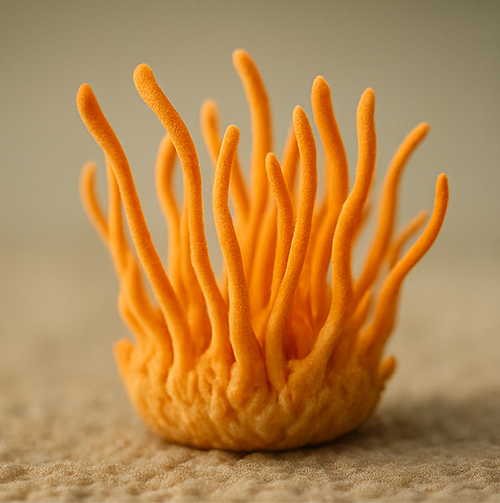

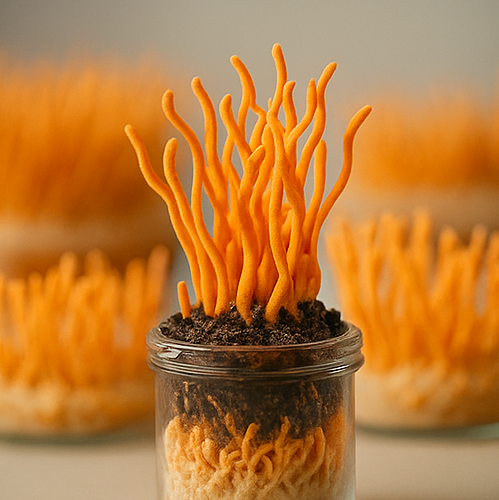



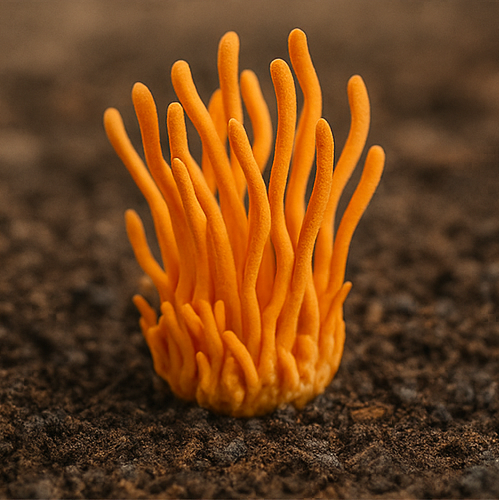





Usado durante siglos en la medicina tradicional china para potenciar la fuerza, la resistencia y la vitalidad.
Cordyceps
Cómo este adaptógeno milenario potencia tu cuerpo y tu mente.
Descubre
Te ayuda a combatir la fatiga y recuperar vitalidad de forma natural.
Energía natural
Ayuda a mantener equilibrio frente al estrés, el cansancio y agentes
Sistema Inmune
Apoya el equilibrio hormonal y la vitalidad general.
Vitalidad
Escríbeme para más info sobre el Protocolo de Energía Natural o el Multi fungi pack.
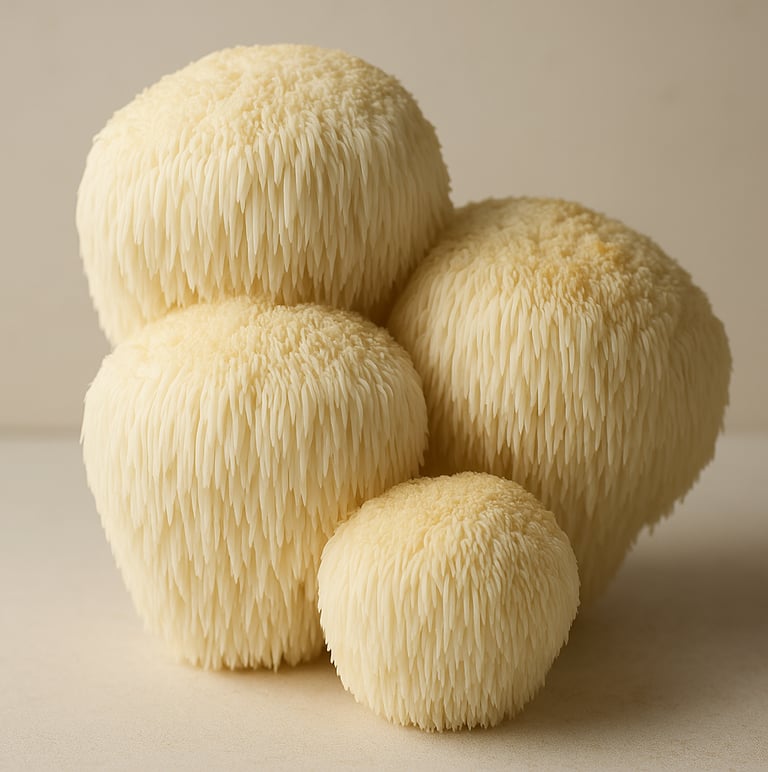

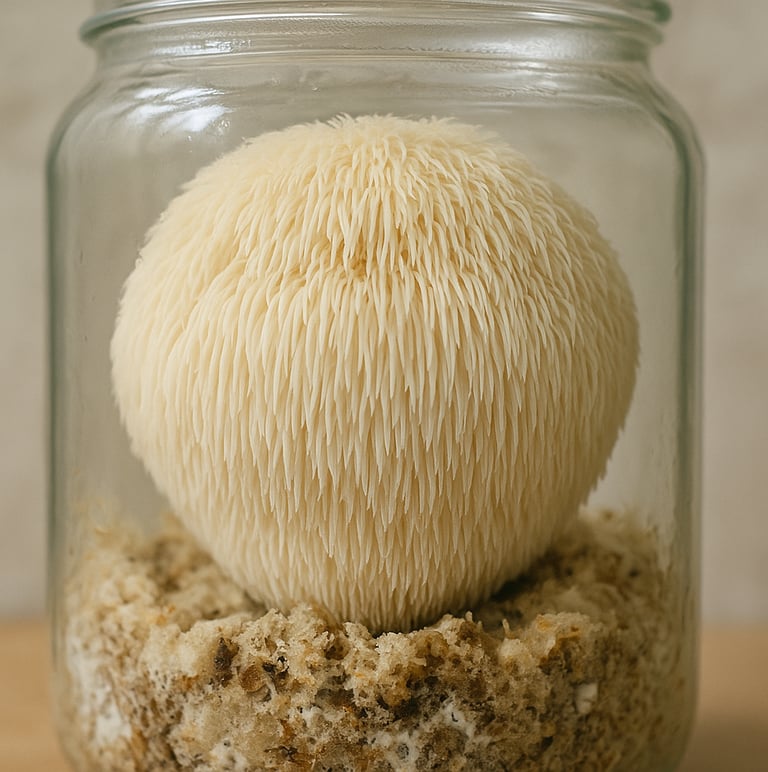





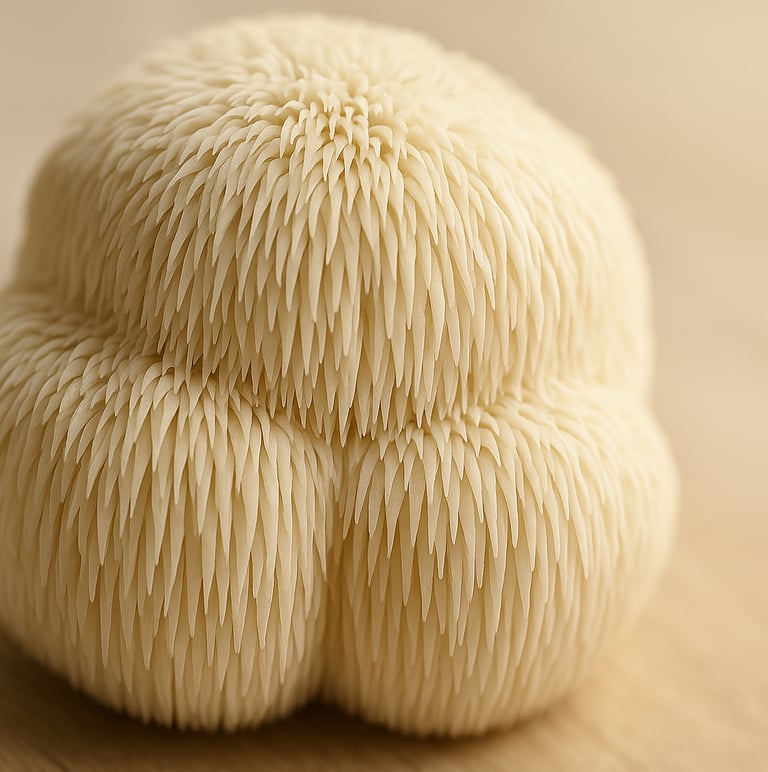



La ciencia moderna confirma muchos de sus beneficios para el cerebro y el sistema nervioso.
La Melena de León
Estimula la producción del factor de crecimiento nervioso (NGF), favoreciendo la neurogénesis y la plasticidad cerebral.
Beneficios
Contiene compuestos que ayudan a regular la respuesta del sistema nervioso al estrés.
Estrés y
Favorece la regeneración de neuronas y nervios dañados.
Salud Nerviosa
Aporta energía limpia y sostenida al cuerpo sin causar sobreestimulación.
Energía y
Escríbeme para más info sobre el Protocolo de NOOTRÓPICOS NATURALES o el Multi fungi pack.


Cognitivos


Ansiedad


Bienestar










EMPOWERMENT
El cansancio crónico, la pérdida de motivación y la falta de energía sostenida son problemas cada vez más comunes en un mundo que exige alto rendimiento constante.
EMPOWERMENT fue formulado para romper ese patrón.


Su combinación de Cordyceps, Maca Negra y L-Carnitina no solo impulsa la energía de manera inmediata, sino que también fortalece los sistemas que la producen y regulan, asegurando un rendimiento estable y saludable.


PREGUNTANOS COMO CONSEGUIRLO


EM
POWER
MENT
system function
Our Products
“Rooted in Calm. Powered by Nature. Focused for Life.”
HYPER
FOCUS
EMPOWER
MENT
BALAN
CING
NATURAL NOOTROPIC
Promotes neurogenesis
Promueve la neurogénesis
and brain health
y la salud cerebral
NOOTRÓPICO NATURAL
Mental clarity
and high productivity
Claridad mental y alta productividad
Enhances memory
and retention
la retención
Mejora la memoria y
Sustained focus without fatigue
Enfoque sostenido sin fatiga
and mental energy
Long-lasting physical
NATURAL energizer
energizante natural
Energía física
y mental de larga duración
Improves performance and vitality
Mejora el rendimiento
y la vitalidad
Apoya la recuperación muscular
Supports muscle recovery
Helps maintain
Ayuda a mantener el equilibrio hormonal
hormonal balance
NATURAL calming
Calmante natural
Relieves stress and
supports emotional balance
Alivia el estrés
y apoya el equilibrio emocional
Helps regulate the nervous system
Ayuda a regular
el sistema nervioso
Promotes deep
and restorative sleep
Favorece un sueño profundo y reparador
Supports immune
system function
Apoya la función
del sistema inmunológico
support@innerboosters.com
InnerBoosters®, ©2025 All rights reserved.
Your daily wellness activator, designed to optimize mind, body, and emotions with 100% natural formulas, backed by science and inspired by ancient medicine.
InnerBoosters®
Natural Fungi & Adaptogens
www.innerboosters.com
#WEDEVELOPWELLNESS
Designed by JoshGiraff
+507 63640749

